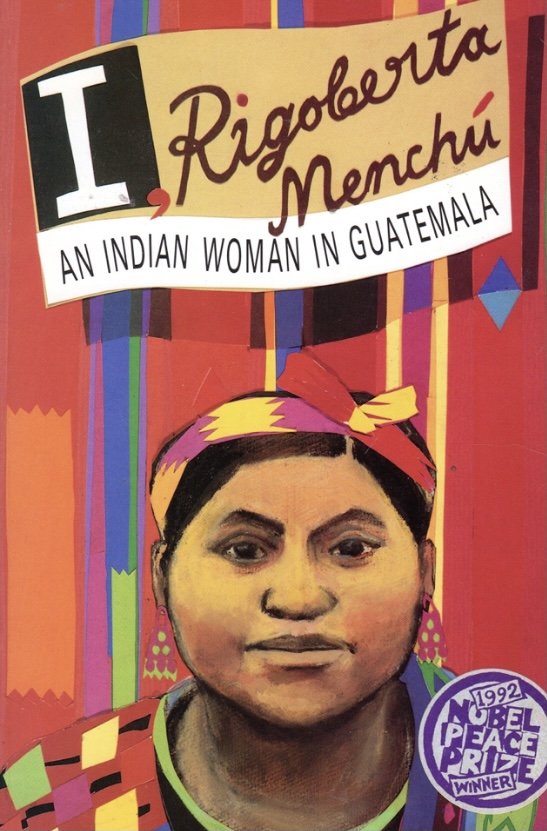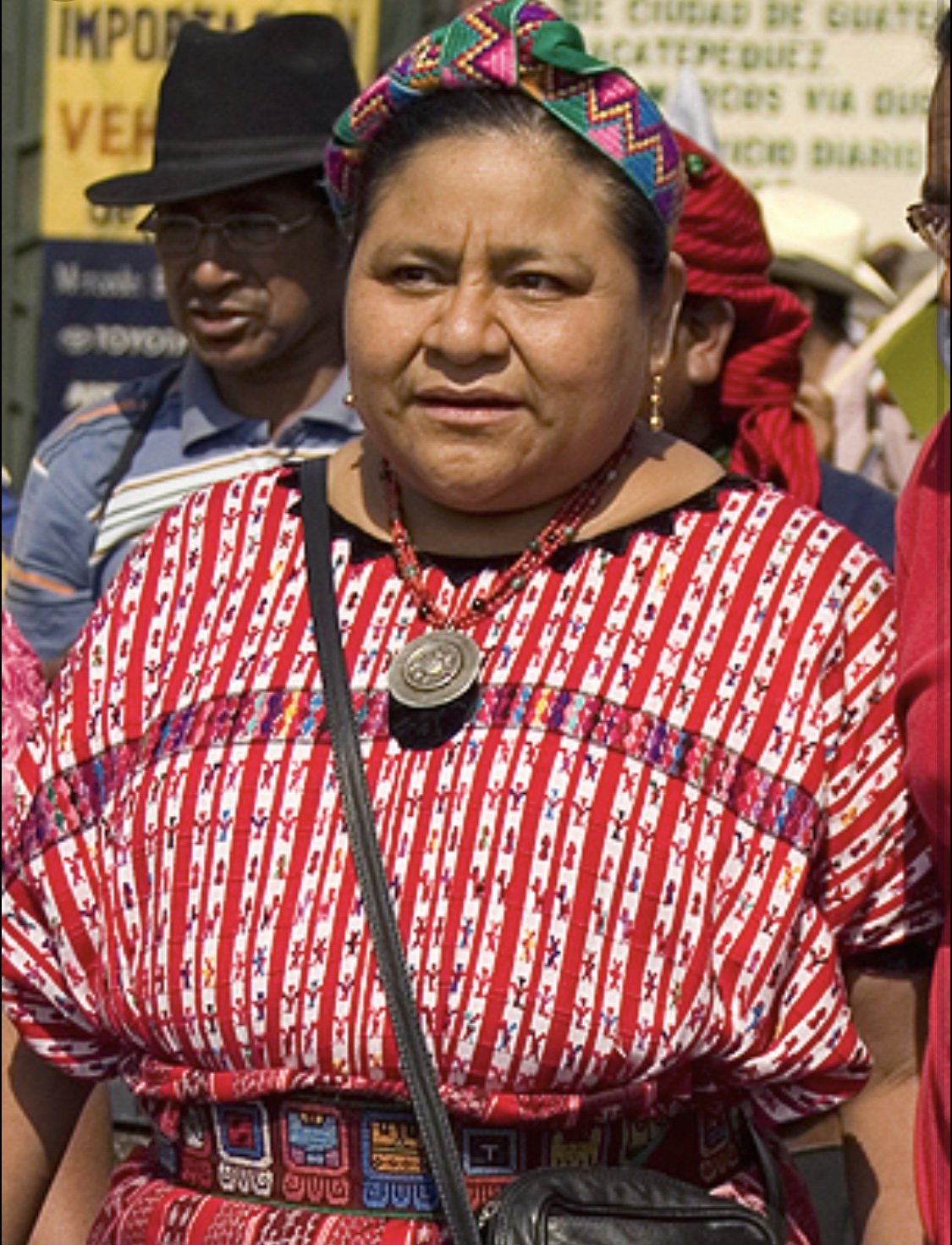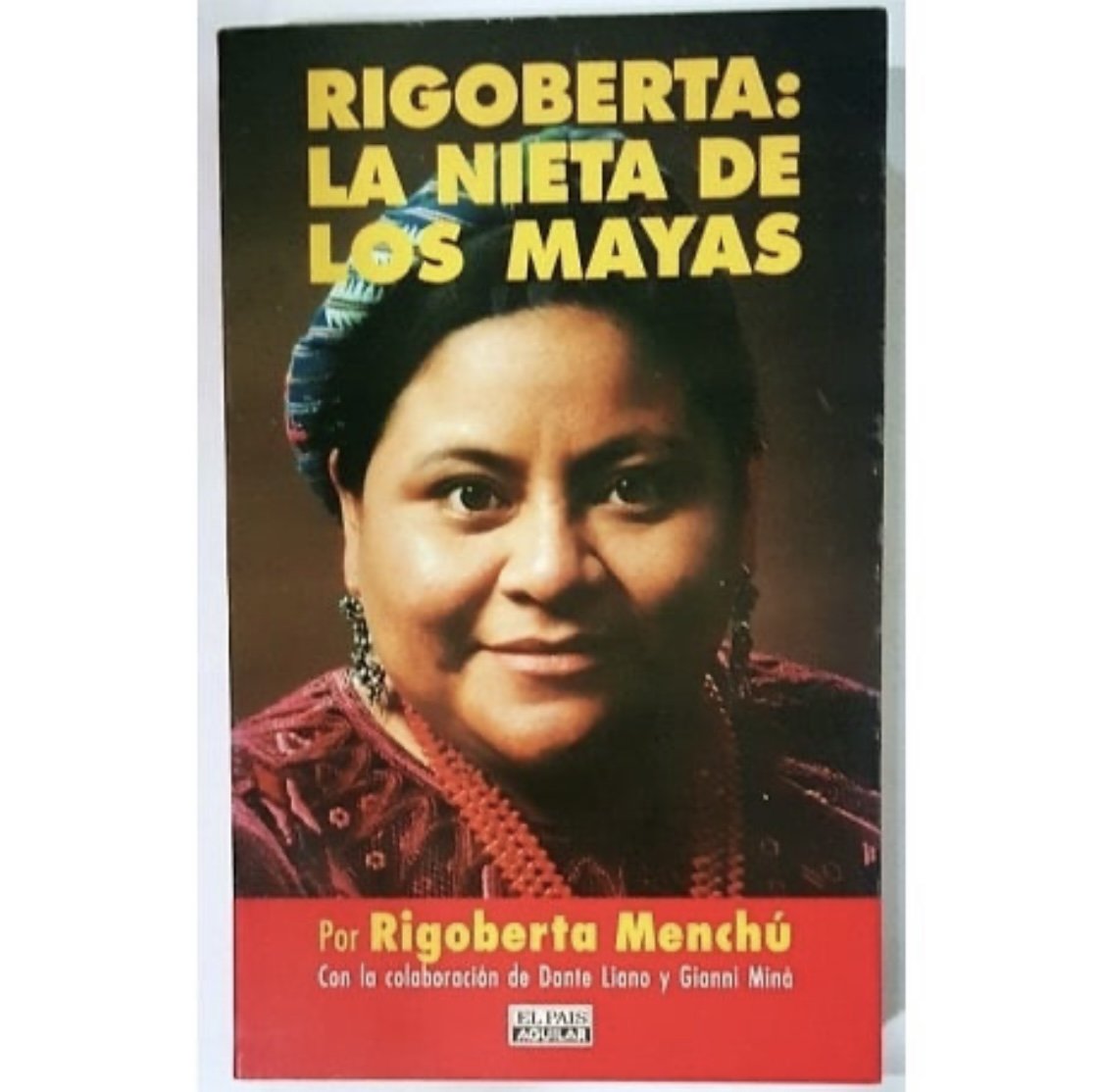As I reflect on the history of the Guatemalan Civil War that was on the brink of inception this time in 1960, I come back to this powerful excerpt from Rigoberta Menchú Tum’s Nobel Peace Prize Acceptance Speech given 32 years later in 1992. The Guatemalan Civil War would continue for four more years after her speech, leaving lasting devastation across Central America, particularly amongst Indigenous populations.
May we not forget that United States theft and monopolies over Indigenous land (eg. the American United Fruit Company) lead to many of these conflicts and civil unrest. May we not forget the reports by analysts that demonstrate that after a small insurgency developed, in the wake of the coup d'état, Guatemala's military leaders developed and refined, with U.S. assistance, a massive counter-insurgency campaign that left tens of thousands of massacred, maimed or missing people. Historian Stephen G. Rabe explains that "in destroying the popularly elected government of Jacobo Arbenz Guzman (1950–1954), the United States initiated a nearly four-decade-long cycle of terror and repression." The 1954 coup d'état, organized and funded by the United States government, installed lead usurper Colonel Castillo Armas as head of Guatemalan government. With United States support and investments, he began to militarize Guatemala almost immediately, financing and reorganizing the police and military. This would ultimately lead to the murders and forced disappearances of between 140,000 to 200,000 people during this time, predominantly in Mayan villages. May we not forget the greedy imperialism that caused — and continues to cause — sickening amounts of destruction and a wake of disappearance, displacement, and death.
May we give gratitude to Doña Rigoberta for her leadership and boundless strength. For her divine connection to the land and her people. May we always look to her, and other Indigenous femmes, to lead the way for collective healing and social justice.
Excerpt of Nobel Peace Prize Acceptance speech given by Rigoberta Menchú Tum, 1994
“…Allow me to say some candid words about my country.
The attention that this Nobel Peace Prize has focused on Guatemala, should imply that the violation of the human rights is no longer ignored internationally. It will also honour all those who have died struggling for social equality and justice in my country.
It is known throughout the world that the Guatemalan people, as a result of their struggle, succeeded in achieving, in October 1944, a period of democracy where institutionality and human rights represented the main philosophies. At that time, Guatemala was an exception in the American Continent because of its struggle for complete national sovereignty. However, in 1954, a conspiration that joined the traditional national power centers, inheritors of colonialism, with powerful foreign interests, overthrew the democratic regime as a result of an armed invasion, thereby reimposing the old system of oppression which has characterized the history of my country.
The economic, social and political subjection that derived from that part of the cold war, was what initiated the internal armed conflict. The repression against the organizations of the people, the democratic parties and the intellectuals, started in Guatemala long before the war started. Let us not forget that.
In the attempt to crush rebellion, dictatorships have committed the greatest atrocities. They have leveled villages, and murdered thousands of farmers particularly Indigenous, hundreds of trade union workers and students, outstanding intellectuals and politicians, priests and nuns. Through this systematic persecution in the name of the safety of the nation, 1 million farmers were removed by force from their lands; 100,000 had to seek refuge in neighbouring countries. In Guatemala there are today almost 100,000 orphans and more than 40,000 widows. The practice of "missing" politicians was invented in Guatemala, as a government policy.
As you know, I am myself a survivor of a massacred family.
The country collapsed into a crisis never seen before and the changes in the world forced and encouraged the military forces to permit a political opening that consisted in the preparation of a new Constitution, in an expansion of the political field and in the transfer of the government to civil sectors. We have had this new regime for eight years and in certain fields there have been some openings of importance.
However, in spite of these openings, repression and violation of human rights persist in the middle of an economic crisis, that is becoming more and more acute, to the extent that 84% of the population is today considered as poor, and some 60% are considered as very poor. Impunity and terror continue to prevent people from freely expressing their needs and vital demands. The internal armed conflict still exists.
The political life in my country has lately circled around the search for a political solution to the global crisis and the armed conflict that has existed in Guatemala since 1962. This process was initiated by the Agreement signed in this City of Oslo, between the Comisión Nacional de Reconciliación (National Commission for Reconciliation) with government mandate, and the Unidad Revolucionaria Nacional Guatemalteca-URNG-(The Guatemalan National Revolutionary Unity), as a necessary step to introduce to Guatemala the spirit of the Agreement of Esquipulas.
As a result of this Agreement and conversations between the URNG and different sectors of the Guatemalan society, direct negotiations were initiated under the government of President Serrano, between the government and the guerrilla, as a result of which three agreements have already been signed. However, the subject of Human Rights has taken long time, because this subject constitutes the core in Guatemalan problematics, and around this core important differences have arisen. Nevertheless, there has been considerable progress.
The process of negotiations aims at reaching agreements in order to establish the basis for a real democracy in Guatemala and for the end of the war. As far as I understand, with the goodwill of the parties concerned and the active participation of the civil sectors, adapting to a great national unity, the phase of purposes and intentions could be left behind so that Guatemala could be pulled out of the crossroads that seems to become eternal.
Dialogues and the political negotiations are, no doubt, adequate means to solve these problems, in order to respond in a specific way to the vital and urgent needs for life and for the implementation of democracy for our Guatemalan people.
It is necessary to point out, here in Oslo, that the issue of the Human Rights in Guatemala constitutes just now the most urgent problem that has to be solved. My statement is neither incidental nor unjustified.
As has been ascertained by international institutions, such as The United Nations Commission of the Human Rights, The Interamerican Commission of the Human Rights and many other humanitarian organizations, Guatemala is one of the countries in America with the largest number of violations of these rights, the largest number of cases of impunity where security forces are generally involved. It is imperative that the repression and persecution of the people and the Indigenous people be stopped. The compulsory mobilization and integration of young people into the Patrols of Civil Self-defense, which to a great extent affects the Indigenous people, must also be stopped.
Democracy in Guatemala must be built-up as soon as at all possible. It is necessary that the Human Rights be fully complied with, i.e.: put an end to racism; guarantee freedom to organize and to move within all sectors of the country. In short, it is imperative to open the fields to the multiethnic civil society with all its rights, to demilitarize the country and establish the basis for its development, so that it can be pulled out of today's underdevelopment and poverty.
Among the most bitter dramas that a great percentage of the population has to endure, is the forced exodus. Which means, to be forced by military units and persecution to abandon their villages, their mother earth, where their ancestors rest, their environment, the nature that gave them life and the growth of their communities, all of which constitute a coherent system of social organization and functional democracy.
The case of the displaced and refugees in Guatemala is heartbreaking; some of them are condemned to live in exile in other countries, but the great majority live in exile in their own country. They are forced to wander from place to place, to live in ravines and inhospitable places, some not recognized as Guatemalan citizens, but all of them are condemned to poverty and hunger. There cannot be a real democracy as long as this problem is not satisfactorily solved and these people are reintegrated to their lands and villages.
In the new Guatemalan society there must be a fundamental reorganization in the matter of land possession, to allow for the development of the agricultural potentials, as well as for the return to the legitimate owners of the land that was taken away from them. And not to forget that this process of reorganization must be carried out with the greatest respect towards nature, in order to protect her and return to her, her strength and capability to generate life.
No less characteristic in a democracy is social justice. This demands a solution to the frightening indexes of infantile mortality, of malnutrition, lack of education, analfabetism, wages not sufficient to sustain life. These problems have a growing and painful impact on the Guatemalan population and there are no prospects and no hopes.
Among the features that characterize society today, is the role of the woman, although woman emancipation has not been fully achieved so far by any country in the world.
The historical development in Guatemala reflects now the need and the irreversibility of the active contribution of the woman in the configuration of the new Guatemalan social order, of which, I humbly believe, the Indigenous women already are a clear testimony.
This Nobel Prize is a recognition to those who have been, and still are in most parts of the world, the most exploited of the exploited ones; the most discriminated of the discriminated ones, the most marginalized of the marginalized ones, but still they are the ones that produce life and riches.
Democracy, development and modernization of a country are impossible and incongruous without the solution of these problems.
In Guatemala it is just as important to recognize the Identity and the Rights of the Indigenous People, that have been ignored and despised not only during the colonial period, but also in the republican one. It is not possible to conceive a democratic Guatemala, free and independent, without the indigenous identity shaping its character into all aspects of national existence.
It will undoubtedly be something new, a completely new experience, with features that, at the moment, we cannot describe. But it will authentically respond to history and the characteristics of the real Guatemalan nationality. The real profile that has been distorted for such a long time.
This urgency and this vital need, are the issues that urge me, at this moment, from this rostrum, to ask the national opinion and the international community, to show a more active interest in Guatemala.”
-Rigoberta Menchú Tum, Dec 10 1994. Excerpt from her speech accepting the Nobel Peace Prize.


